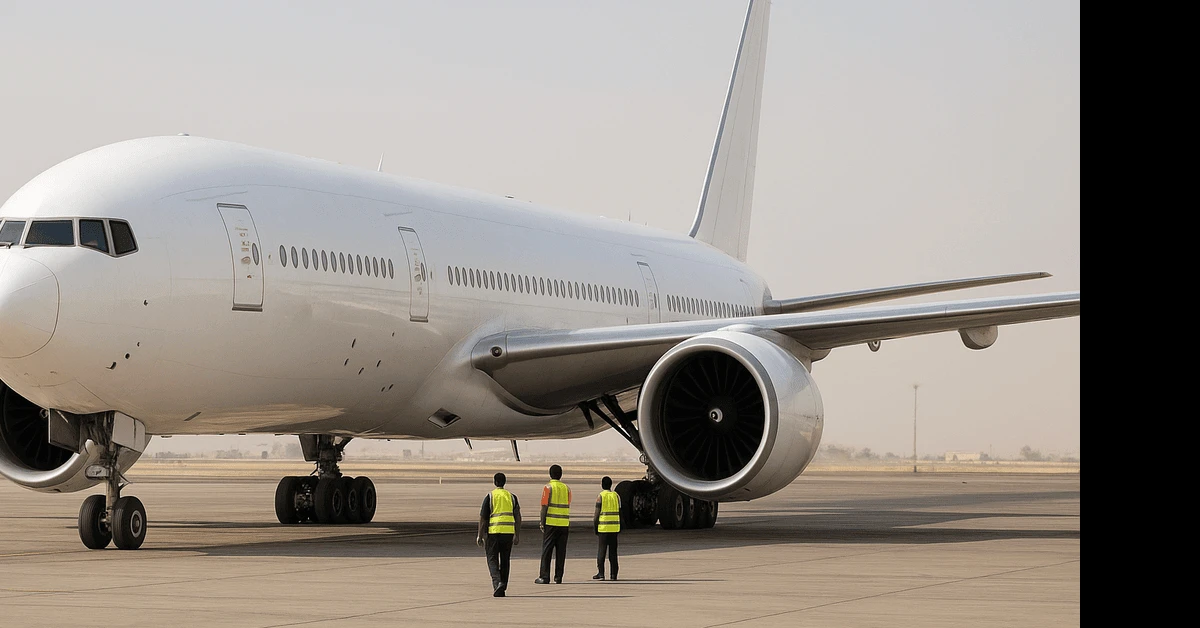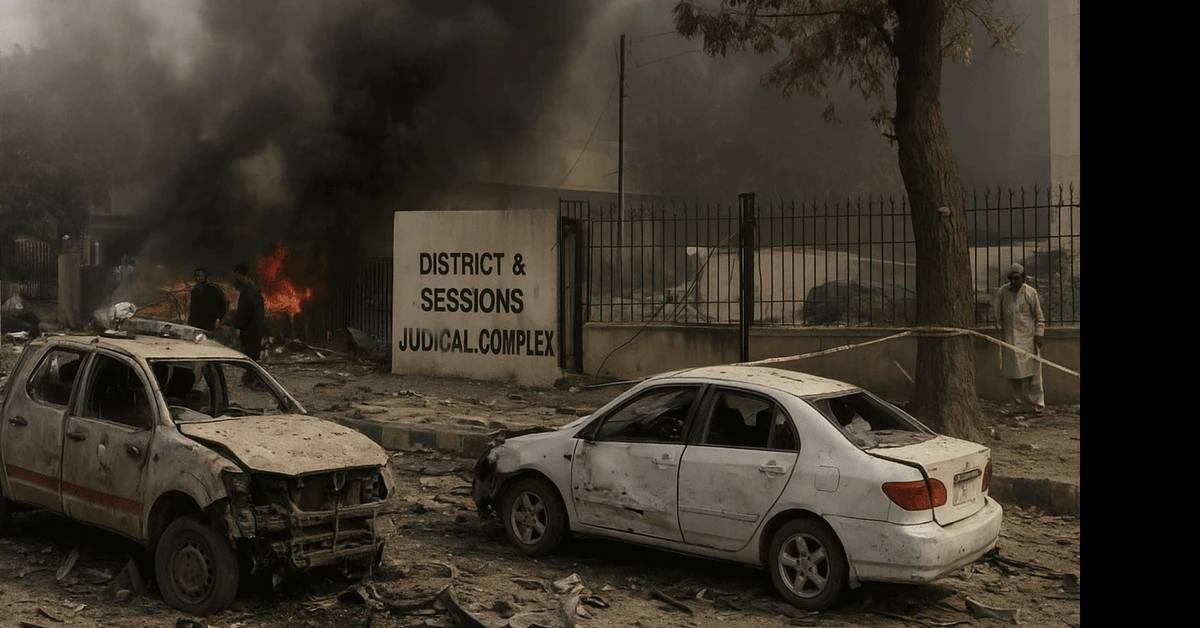Last Updated: November 9, 2025
Boeing 777 Grounded at Jeddah: What We Know and Why It Matters

A wide-body Boeing 777 aircraft has been grounded in Jeddah following reports of a serious fault. Early reports suggest that the issue may be related to an engine fault or a severe bird strike that occurred during flight operations. This article breaks down what is known so far, explores possible causes, examines the implications for airlines and passengers, and explains why the incident matters for aviation safety in the Middle East.
1. What Has Been Reported So Far
According to multiple aviation sources, a Boeing 777 experienced a technical fault or a bird strike during its approach or departure near Jeddah’s King Abdulaziz International Airport. The aircraft landed safely but was taken out of service for inspection. Passengers were disembarked safely, and engineers began evaluating the extent of the damage.
While the airline involved has not released full technical details, early signs suggest a precautionary grounding to ensure passenger safety and prevent recurrence. The official investigation is ongoing, and the aircraft will remain grounded until cleared by maintenance teams and aviation authorities.
2. Possible Causes of the Grounding
2.1 Bird Strike
Bird strikes are one of the most common causes of aircraft damage worldwide. They can affect engines, windshields, or flight sensors. If the Boeing 777 sustained a bird strike during takeoff or landing at Jeddah, standard procedure requires a full post-flight inspection before the plane can fly again. Even minor damage to the engine or fuselage can trigger grounding for safety checks.
2.2 Engine Fault or Technical Malfunction
Technical malfunctions are another leading reason for temporary grounding. The Boeing 777 is equipped with complex twin-engine systems that are highly sensitive to sensor readings. If an engine performance warning or oil pressure alert appears, airlines follow strict maintenance protocols before resuming service.
2.3 Routine Maintenance Triggers
Sometimes, aircraft are grounded not due to an accident but as a result of scheduled maintenance inspections that detect wear or irregularities. When these inspections coincide with operational flights, an aircraft may be held at the airport until replacement parts or additional checks are completed.
3. Why Jeddah Matters as a Hub
Jeddah’s King Abdulaziz International Airport is one of the busiest aviation hubs in the Middle East, serving millions of passengers annually, especially during the Hajj and Umrah seasons. Grounding a Boeing 777 in Jeddah can disrupt regional flight schedules, impact connecting routes, and delay long-haul services that rely on the 777’s large passenger and cargo capacity.
4. Operational and Passenger Implications
- Flight delays and cancellations: A grounded wide-body jet can lead to major scheduling challenges. Airlines must reassign aircraft or cancel flights to maintain operational efficiency.
- Route changes and increased costs: When an aircraft like the 777 is unavailable, airlines often deploy smaller planes, which increases fuel costs per passenger and reduces available seating.
- Passenger inconvenience: Travelers may face delays, rebookings, or temporary accommodation while airlines resolve the technical issue.
- Maintenance pressure: Wide-body aircraft require extensive maintenance teams and spare parts, which can strain an airline’s resources if the grounding is prolonged.
5. What Airlines and Regulators May Do Next
- Full inspection: Technicians will inspect the engines, wings, fuselage, and electronic systems to identify the root cause of the fault.
- Investigation: The airline, in coordination with Boeing engineers and aviation regulators, will conduct a full investigation to determine whether the issue was isolated or systemic.
- Fleet checks: If the issue is mechanical and could affect other aircraft of the same model, similar jets may undergo additional inspections.
- Safety clearance: Once the fault is fixed and tests are complete, the aircraft will undergo a certification process before returning to active service.
6. Broader Implications for Boeing and Global Aviation
The Boeing 777 has long been considered one of the safest and most reliable long-haul aircraft in operation. However, incidents like this highlight the challenges of maintaining aging fleets, managing technical risks, and operating in regions with environmental hazards such as bird strikes or high temperatures. The aviation industry continues to monitor such cases closely to improve safety and maintenance standards globally.
7. Key Questions Still Unanswered
- Which airline operated the grounded Boeing 777?
- What specific part of the aircraft caused the grounding — engine, sensors, or fuselage?
- Was the incident triggered by a bird strike or a mechanical malfunction?
- How long will the aircraft remain grounded before it returns to service?
8. What Travelers Should Know
- Check flight status updates regularly, especially if you are flying through Jeddah in the coming days.
- Be prepared for possible delays or aircraft substitutions on affected routes.
- Understand your passenger rights — airlines are obligated to assist and compensate travelers during unexpected disruptions.
- Remain calm — aircraft groundings are a standard part of aviation safety protocols and are implemented to protect passengers.
Conclusion
The grounding of a Boeing 777 in Jeddah underscores the aviation industry’s strong commitment to safety and transparency. Whether due to a bird strike, mechanical fault, or precautionary inspection, grounding ensures that all aircraft meet the highest operational standards before resuming service. As investigations continue, the incident serves as a reminder that aviation safety remains the top priority for airlines, regulators, and passengers worldwide.
Frequently Asked Questions (FAQs)
Q1: Does grounding mean the plane is permanently out of service?
No. Grounding is a temporary safety measure. Once inspections and repairs are completed, the aircraft can return to active duty after clearance from regulators.
Q2: How long does it take to repair a grounded Boeing 777?
It depends on the issue. Minor faults can be resolved within days, while major engine or structural repairs may take weeks.
Q3: Are Boeing 777 aircraft safe to fly?
Yes. The Boeing 777 has one of the best safety records in commercial aviation. Groundings are rare and usually preventive.
Q4: What happens to passengers when a plane is grounded?
Passengers are usually accommodated on another flight, offered refunds, or provided temporary lodging, depending on the airline’s policy and the delay duration.
Q5: Can bird strikes be prevented?
While they cannot be completely prevented, airports use bird management systems, radar detection, and deterrents to minimize risks, especially in migration zones like the Middle East.
You May Also Like:

Why Storage Speed Matters More Than RAM After 2–3 Years of Phone Use...

Starlink and the Race for Satellite Internet in Pakistan: What You Need to Know in 2025...

Shahid Khaqan Abbasi Suffers Heart Attack: What We Know, What It Means and What Comes Next...

Petrol Price Drop in Pakistan on April 16, 2025: What You Need to Know...

Islamabad Suicide Blast 2025: Massive Explosion Near G-11 Court, What We Know So Far...

Extreme Heat and Hailstorms: What's Happening and Why?...

Disappearing Digital Payments in Pakistan: Why Transfer Amounts Get Lost Between Banks, Wallets and ...

